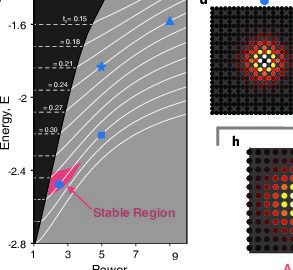Spring 2023 Topics Course

Jeremy Marzuola will offer a Graduate Topics Course (Math 891) in Spring 2023. It will be titled: Stability of Nonlinear States in Evolution Equations. We encourage you to enroll / watch for the course (after its completion) on the upcoming Online Topics Course Collaborative.
Description: We cover existence theory for nonlinear states in a variety of nonlinear evolution equations: 1. Dispersive models such as Korteweg-de Vries; nonlinear Schrödinger or Gross-Pitaevski, Dirac and Klein-Gordon equations, as well as other models like Density Functional Theory in quantum mechanics, Dispersion Managed models from optics, Wave and Schrödinger Maps, Schrödinger-Coulomb models, models from weak turbulence, etc.; and 2. Parabolic models such as Ginzburg-Landau equations, thin-films, and models from material science. While these may seem disparate and unrelated, we will see that in many cases finding stationary states for such models follows from similar tools. We will consider the existence of nonlinear states from the point of view of ode theory, the calculus of variations, and by using bifurcation theory in function spaces applied to a number of examples. We will also introduce some numerical schemes for locating these states and discuss their convergence properties. Then, we will discuss aspects of spectral stability and address this question in a variety of examples. Since the linearized operators around these states are non-self-adjoint, the analysis of these operators can be rather challenging, but we will consider several representative examples to identify key ideas. In particular, we will address issues surrounding existence of stable and unstable eigenvalues, quantifying the null-space, and existence/non-existence of embedded eigenvalues. Then, given time, we will then discuss the notions of orbital and asymptotic stability and dynamics, and how they relate to dynamical properties of the corresponding evolution equations. Throughout we will present open problems that might be of interest for young researchers and focus on insightful computations.
